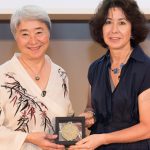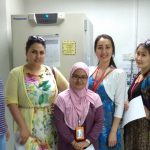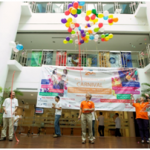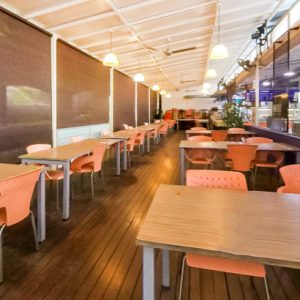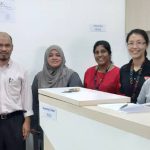Universities all over the world have long stood for serving the creation, structuring and dissemination of both theoretical and practical knowledge. These universities have survived and adapted themselves to all sorts of upheavals. However, with the advent of the COVID-19 pandemic worldwide, it has become more urgent to reconsider the present reality of universities all over the world. It is also equally important for the university to revisit the university – community relationship and reflect upon the roles of the university in reshaping the post-COVID-19 society/world. With this in mind, IMU Community Engagement organised a webinar on “The Role of Universities in Shaping a Better Post-COVID-19 World” on 16 September 2020, bringing together three distinguished panellists from three different regions. They are Prof Trudie Roberts from the University of Leeds, United Kingdom; Dr Wylie Liu, from the University of California, San Francisco (UCSF) , United States of America; and Dr Lee Hwok-Aun from the Institute of Southeast Asia Studies, Singapore. This webinar was supported by the Asia Pacific University Community Engagement (APUCEN) and the Association for Medical Education in Europe (AMEE).
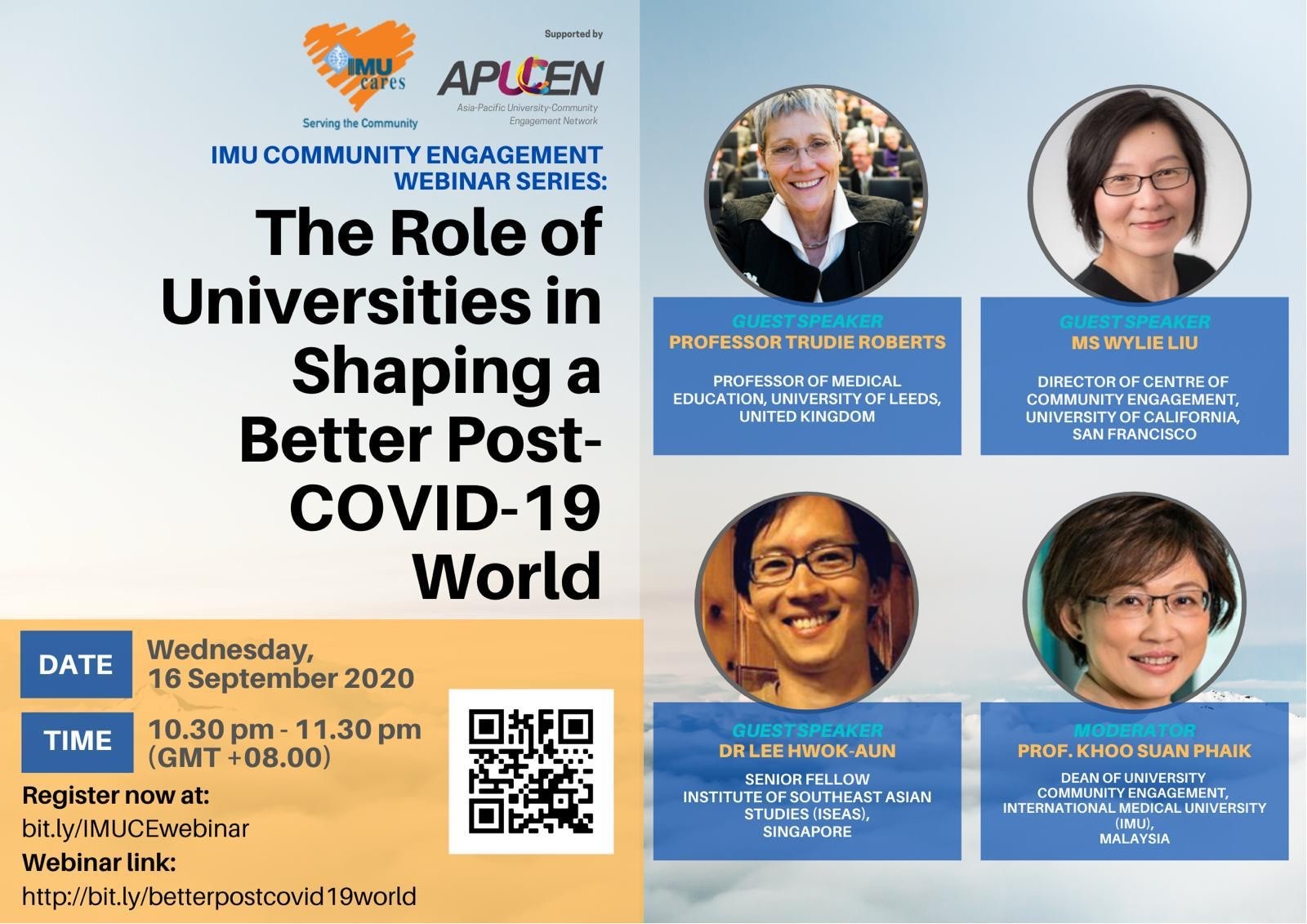
Starting off the webinar was Prof Trudie Roberts, who spoke about the traditional roles of universities in knowledge creation via research, knowledge transmission and curation of information. However, Prof Trudie sees universities moving towards being a central hub where people will feel engaged where universities provide help, support, advice, guidance, assistance and connectivity to the local community. Most importantly, universities will have to move from being purely academic to bringing the application and solutions to the community through constant engagement to understand the needs of the community. 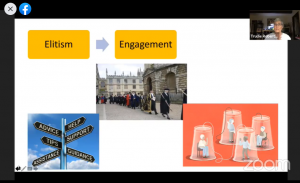
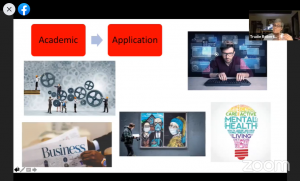 Dr Lee Hwok-Aun echoes Prof Trudie and adds that universities should cultivate graduates to be global citizens that acquires relevant practical knowledge and generate ideas that would benefit the society via their research. This will enable students to be developed in a holistic manner where problem solving, and leadership skills will enable them to be leaders in the community wherever they are. Dr Wylie Liu then shared about the roles of the Community Engagement Center of UCSF, where their focus is to leverage its economic resources to provide economic equity in the community by aligning strategically with its community partners and concentrating its efforts in communities surrounding the university’s campuses, especially those that are under-resourced. For example, through the Anchor Institution Initiative, the university will collaborate with its community partners to increase the economic security and opportunity for underserved populations in the San Francisco Bay Area by leveraging on the university’s workforce development, procurement and community investment resources.
Dr Lee Hwok-Aun echoes Prof Trudie and adds that universities should cultivate graduates to be global citizens that acquires relevant practical knowledge and generate ideas that would benefit the society via their research. This will enable students to be developed in a holistic manner where problem solving, and leadership skills will enable them to be leaders in the community wherever they are. Dr Wylie Liu then shared about the roles of the Community Engagement Center of UCSF, where their focus is to leverage its economic resources to provide economic equity in the community by aligning strategically with its community partners and concentrating its efforts in communities surrounding the university’s campuses, especially those that are under-resourced. For example, through the Anchor Institution Initiative, the university will collaborate with its community partners to increase the economic security and opportunity for underserved populations in the San Francisco Bay Area by leveraging on the university’s workforce development, procurement and community investment resources.
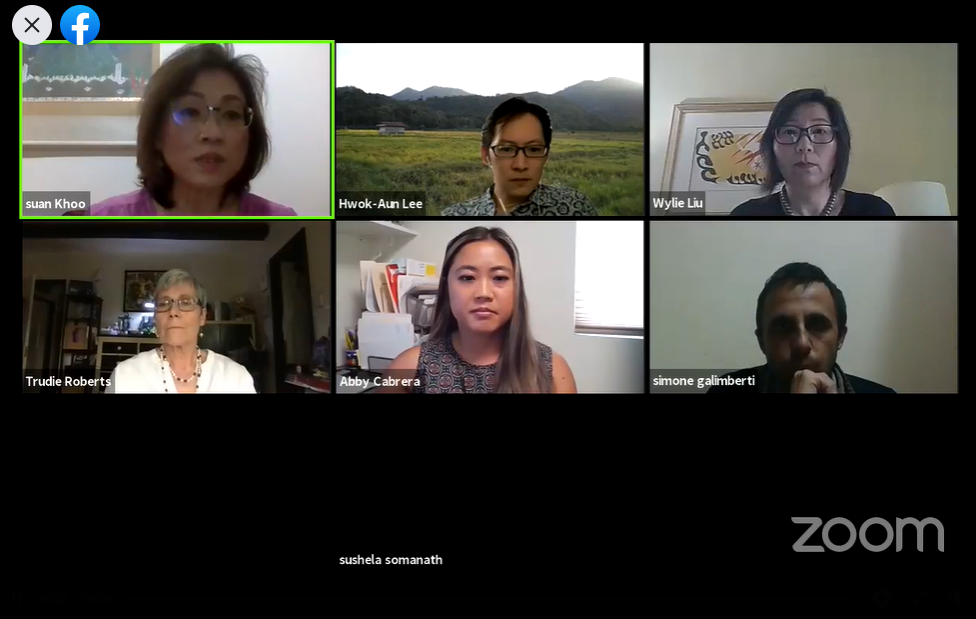
A discussion following this saw interesting views regarding the balance between new knowledge creation and clinical skills training that is necessary for certain professions. The panellists agreed that it is vital to recognise teaching and new knowledge creation as an important component of the university instead of research-based university rankings which do not look at impact these research gives to the community. The combination of real-world immersion and simulated learning approach is also important moving forward as students of this generation are becoming more vocal and passionate about advocating for social justice and finding solutions that is good for the global community. Prof Trudie also highlighted the role of universities to listen, support and co-design with students what is needed by the students and community. Feedback from the participants of the webinar was positive with many comments on it being well-organised and thought-provoking. Indeed, this webinar has given some food for thought for the management of universities all around the world.
| About the panellists |
|---|
| Prof Trudie Roberts is an eminent medical educationist known locally and internationally and is based at the University of Leeds. She has been the President of the AMEE for a number of years till 2019. A very close friend to IMU, she plays crucial and leading roles in medical education worldwide and in the IMU Professional Education Advisory Committee (PEAC), Academic Council, Editorial Board Member for the online publication IeJSME and many other advisory roles for IMU over the years. |
| Dr Wylie Liu is the Director of the Centre for Community Engagement at the University of California San Francisco. With BS (University of California, Berkeley), MPH (Johns Hopkins University), MPA (Harvard University) and specialising in diversity, equity and inclusion champion training, she brings with her rich experiences on helming the Centre for Community Engagement at UCSF as the pulse of the community at the Bay Area in San Francisco. |
| Dr Lee Hwok-Aun, a Senior Fellow of the Southeast Asian Studies, ISEAS based in Singapore, is affiliated to the Nanyang Technological University. He has researched and published voluminous works in reputable journals on affirmative action, discrimination, inequality, social protection, labour and education, with a focus on Malaysia, as well as comparative study vis-à-vis South Africa and Southeast Asia. |





